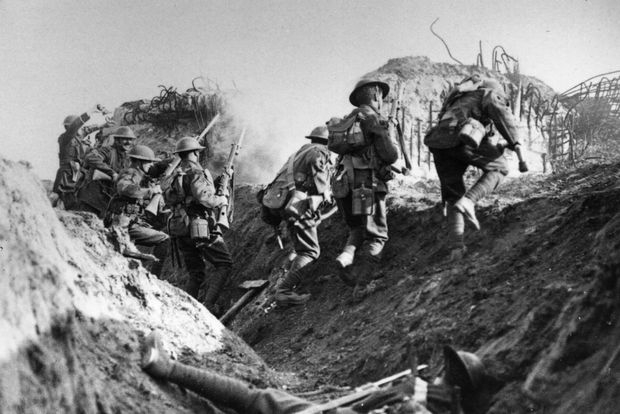From ‘Depression and its Causes’, The Spectator, 5 June 1915:
What causes fear and anxiety in moments of crisis is not the inevitable, but the thought whether one is doing enough or doing the right thing to prevent the peals which one dreads. When men have made the renunciation and are spending their last shilling and their last ounce of strength, have given, in fact, all that they have to give, they are happy. The bitterness is past.
When, however, they have not made voluntarily, or been compelled by circumstances to make, the great renunciation, it is a very different matter. It was not the poor widow who cast in all that she had who was unhappy. He who went away sorrowful was the young man who was prepared to act very generously and in a very public-spirited way, but who could not bear to take the final plunge—”for he had great possessions.”
The British nation have still great possessions in the way of liberty of action, of liberty not to fight for their country, of liberty to spend their money in the sedative of drink, the sedative which slows down the pace and energy of the human machine—liberty to go on money-making as usual, liberty to spend time in amusements which might be spent in putting energy into the war, liberty to grumble and to criticize those who put us to shame by their cheerful self-sacrifice. All these seem “great possessions” to the popular mind. At any rate, they are great indulgences, and the thought of giving them up is as terrible as was the thought which went through the mind of the young man in the Gospel like a stab through the heart. But though the country may now be “going away sorrowful,” this mood will not last long.
We have the most absolute faith that it will soon come to itself, make the necessary renunciation of its great possessions, and then find, as all those who have made it have found, that renunciation leads to greater happiness, greater quietness of soul, greater sense of well-being, than the refusal to make the sacrifice. It is the making up one’s mind to jump, not the jump, which is unpleasant. When we speak of the country going away sorrowful with its duty undone we mean of course only a part of the country—the country minus the men who in such vast numbers have voluntarily thrown all thought of self aside, and the equally splendid army of women who have aided and encouraged them in their mental struggle, and have made the greatest sacrifices of all.
The way in which the people, or, rather, a huge proportion of the people, have “willingly offered themselves” is fraught with a pathos so magnificent that it is difficult to deal with it with that control and reticence which it demands. Never in the history of our country, or of any country in the world, have so large a portion of the population come forward voluntarily to serve their country in arma. Remember that this call for service has been answered by hundreds of thousands of men who are not experts in foreign policy, and who might well have been excused for not understanding the merits of the quarrel before them. It is comparatively easy to get men to understand the need of being up and doing when they actually see their country invaded, when the enemy is across the border, when they realize that unless they spring to arms it may be only a question of a few days before the enemy are actually driving them from their own homes. Our people have heard no such trumpet-call as that. Instead. they have had every excuse not to hear the call, and every temptation to ignore it even when heard.






Comments